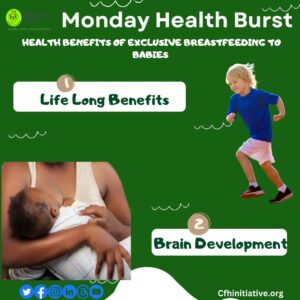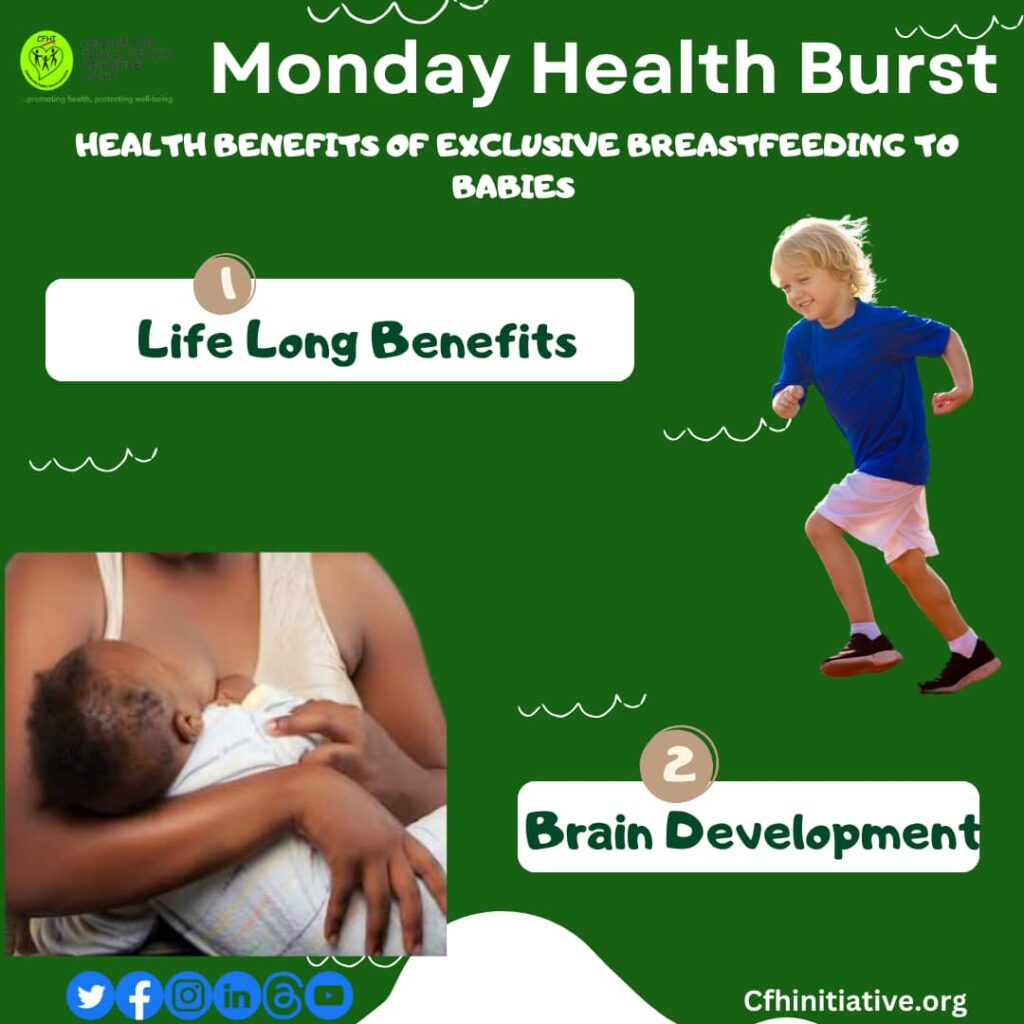Breastfeeding is the act of feeding an infant breast milk from the breast. Exclusive and continued breastfeeding could help prevent 13% of death globally among children under five year old.1
World Health Organization (WHO) recommends exclusive breastfeeding for six months and encourages continuing breastfeeding even after solid foods are introduced until the age of two. It is also recommended, that Children initiate breastfeeding within the first hour of birth.
The benefits of exclusive breastfeeding cannot be understated as it includes;
Brain development: A US study showed that toddlers and preschoolers who had been exclusively breastfed for at least three months had brains with twenty to thirty percent more white matter which connects different regions of the brain and transmits signals between them than those who had no breast milk. Therefore, Infants who are breastfed exclusively are more likely to have higher intelligence quotient (IQ) than formula fed babies.2
Life long benefits: Children who were breastfed are less likely to suffer from diseases such as leukaemia and lymphoma and tend to have better eyesight, and straighter teeth than those who had formula milk.
Breastfeeding also helps to lower baby’s risk of becoming obese or developing type 1 or type 2 diabetes as adult.
Exclusive breastfeeding is known to considerably decrease infant mortality on account of common childhood illness. It is one of the ways to minimize the chances of a baby getting diarrhoea, allergies, pneumonia and suffering from malnutrition.
Sadly, three in five babies are not breastfed in the first hour of life and two out of three infants are not exclusively breastfed for the recommended six months.3
More awareness should be created on the benefits of exclusive breastfeeding. Furthermore, support from family members and friends is vital in encouraging mothers to breastfeed their infants exclusively.
Monday Health Burst is an initiative of CFHI to address issues of basic health concern. Join us every Monday on all our social media platforms for more episodes.
References
- World Health Organisation (WHO)
- https://www.google.com/url?sa=t&source=web&rct=j&opi=89978449&url=https://www.ncbi.nlm.nih.gov/pmc/articles/PMC8894195/&ved=2ahUKEwjnjqmcj8uAAxWhS0EAHe_iBWYQFnoECB4QAQ&usg=AOvVaw0RkUImQsW9g2c-tH5M8Gud
- World Health Organisation (WHO)


